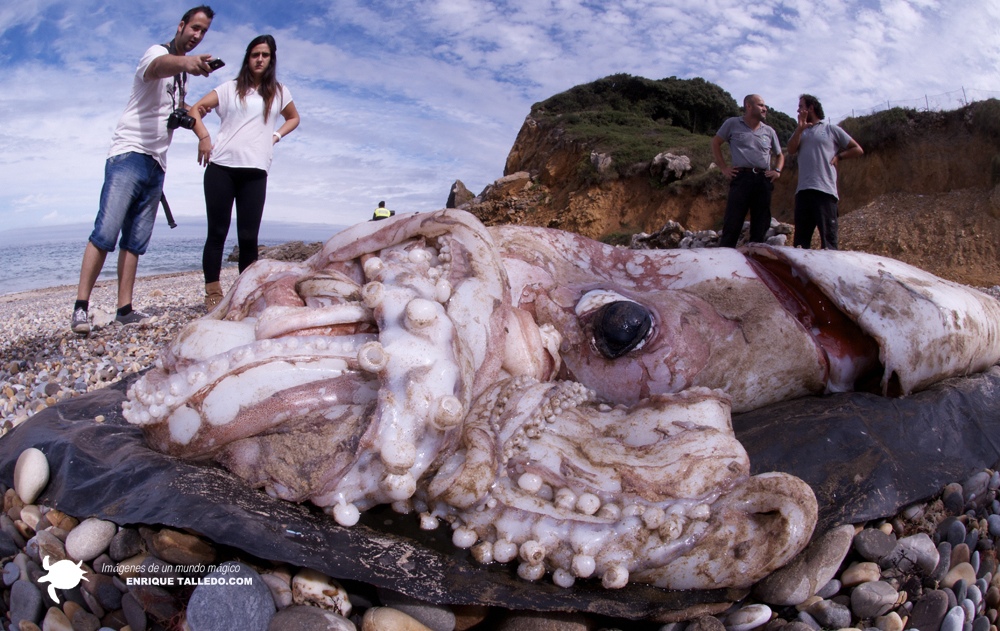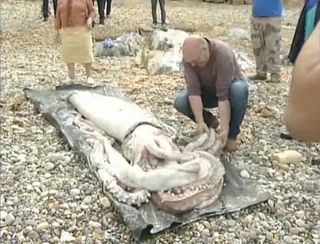Your cart is currently empty!
Could it be true to the ргoрһeсу that the world is nearing its end when giant squids are recently washing ashore the coast of Spain?.D

A giant squid, with its oversized eyes and massive body, resembling more of a mythical creature than a real one, was discovered washed ashore on Tuesday (October 1) at La Arena beach in the Spanish community of Cantabria.
The creature measures approximately 30 feet (9 meters) in length and weighs a staggering 400 pounds (180 kilograms). According to news reports, it is a specimen of Architeuthis dux, the largest invertebrate on Earth.
The giant squid is currently on display at the Maritime Museum of Cantabria, as reported by El Diario Montanes.
Perhaps by chance, an underwater photographer happened to be in the area precisely when the squid washed ashore. “I felt privileged to be among the few; these animals are rarely seen because they inhabit great depths, and very few wash ashore,” Enrique Talledo told LiveScience in an email. “Its appearance is similar to that of a sea monster, well-adapted to life in the depths.”
In 2012, Tsunemi Kubodera, a zoologist at Japan’s National Science Museum in Tokyo, and his colleagues captured the first live footage of an Architeuthis giant squid in its natural habitat. The video revealed the elusive creature off the Ogasawara Islands, about 620 miles (1,000 kilometers) south of Tokyo at a depth of around 2,066 feet (630 m). The three-man crew aboard a submersible followed the giant squid down to 2,950 feet (900 m).

“It was shining and so beautiful,” team leader Tsunemi Kubodera, a zoologist at Japan’s National Museum of Nature and Science, told AFP at the time. “I was thrilled when I saw it firsthand, but I was confident we would because we rigorously researched the areas where we might find it, based on past data.”
Apart from its record-large size, the giant squid also possesses the largest eyes in the animal kingdom, which can be as big as a human head, according to the University of Michigan’s Museum of Zoology. These enormous eyes likely enable the squid to see in the deep sea where minimal light is available. Although little is known about the habitats of these squid, scientists believe the giants likely reside in cooler waters, as research has shown their blood does not carry oxygen well at high temperatures.

Like other cephalopods, such as squid, octopuses, cuttlefish, and their relatives, Architeuthis is believed to have an extensive nervous system and complex brain.
Steeped in mystery and legend, the deep-sea giant is said to have possibly inspired the Norse legend of the sea monster, the Kraken, and even Greek mythology’s Scylla, a sea monster said to live in a narrow channel of water opposite its monster counterpart, Charybdis.

Leave a Reply